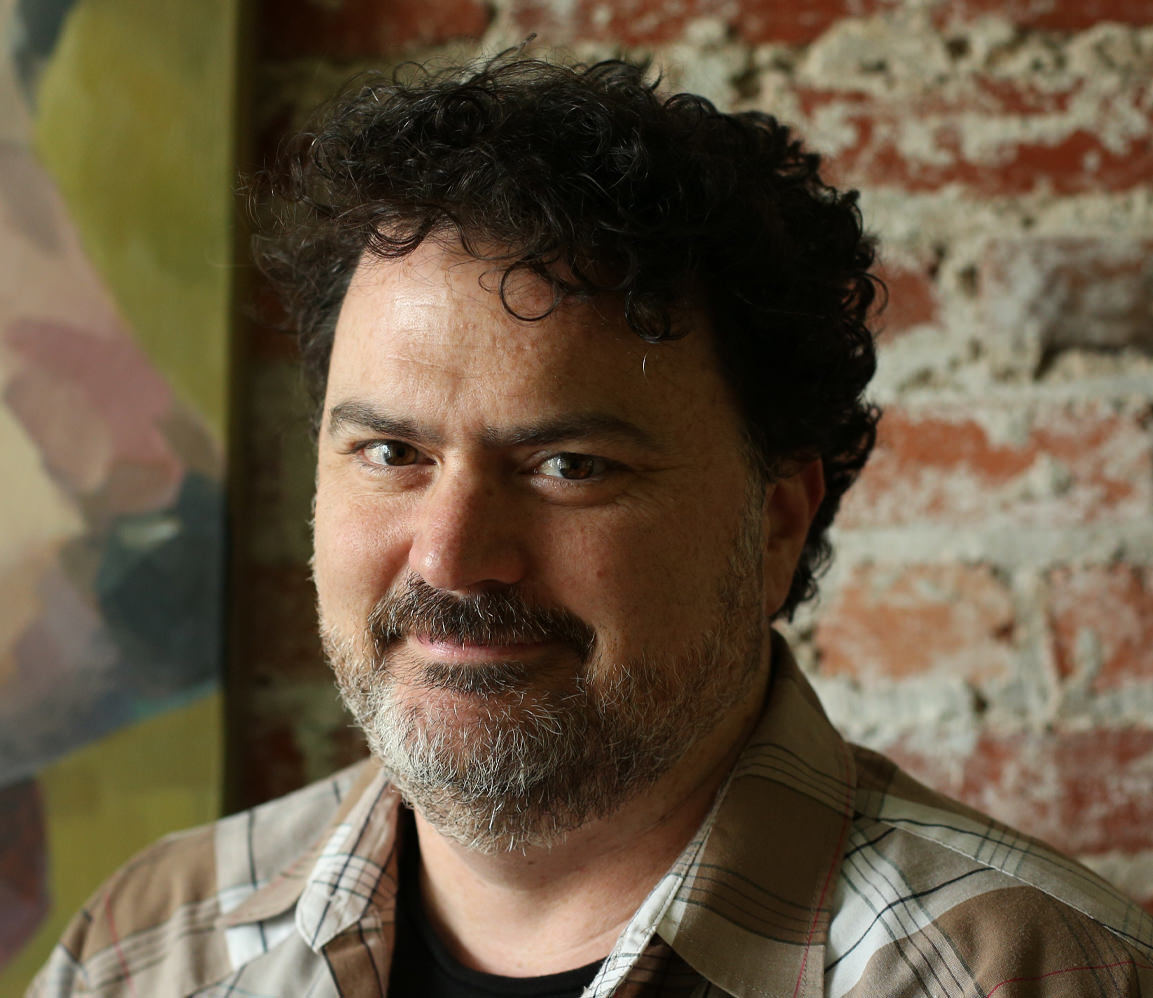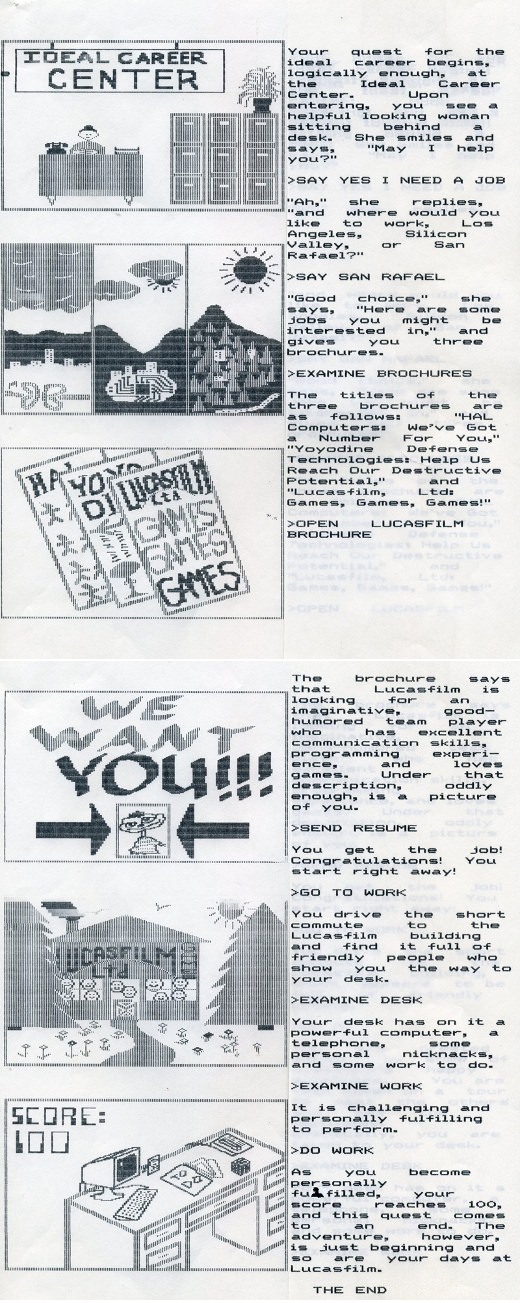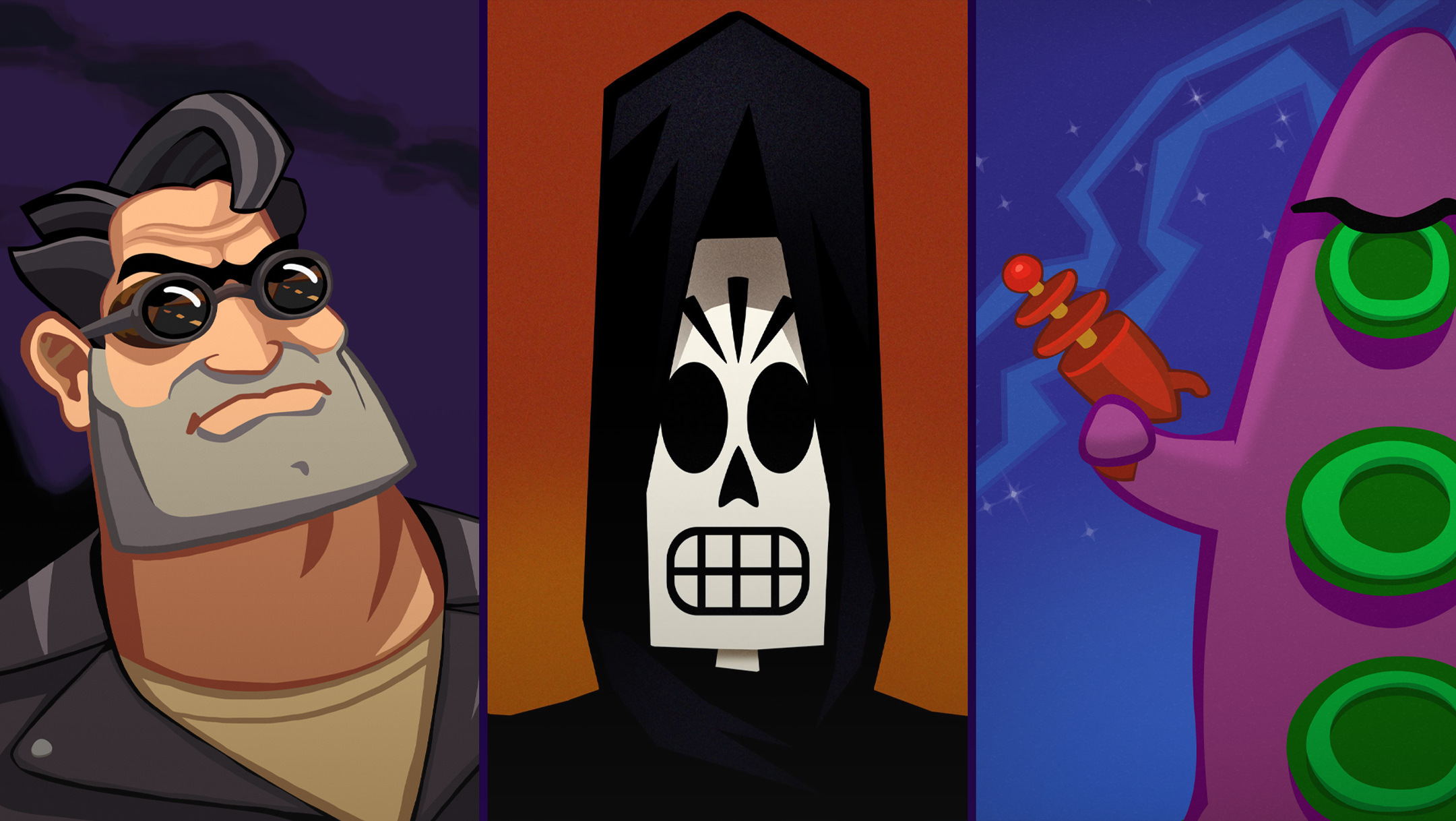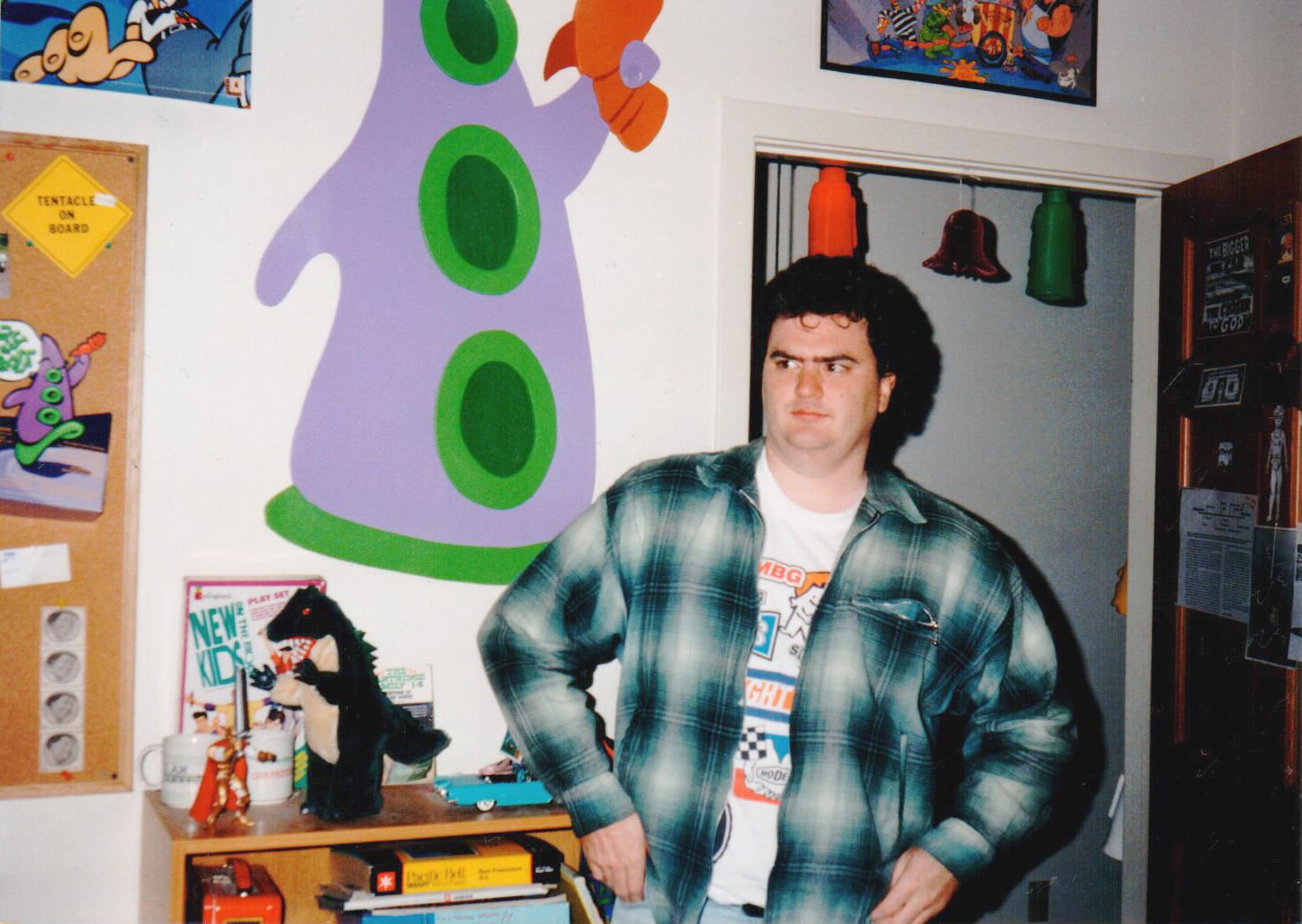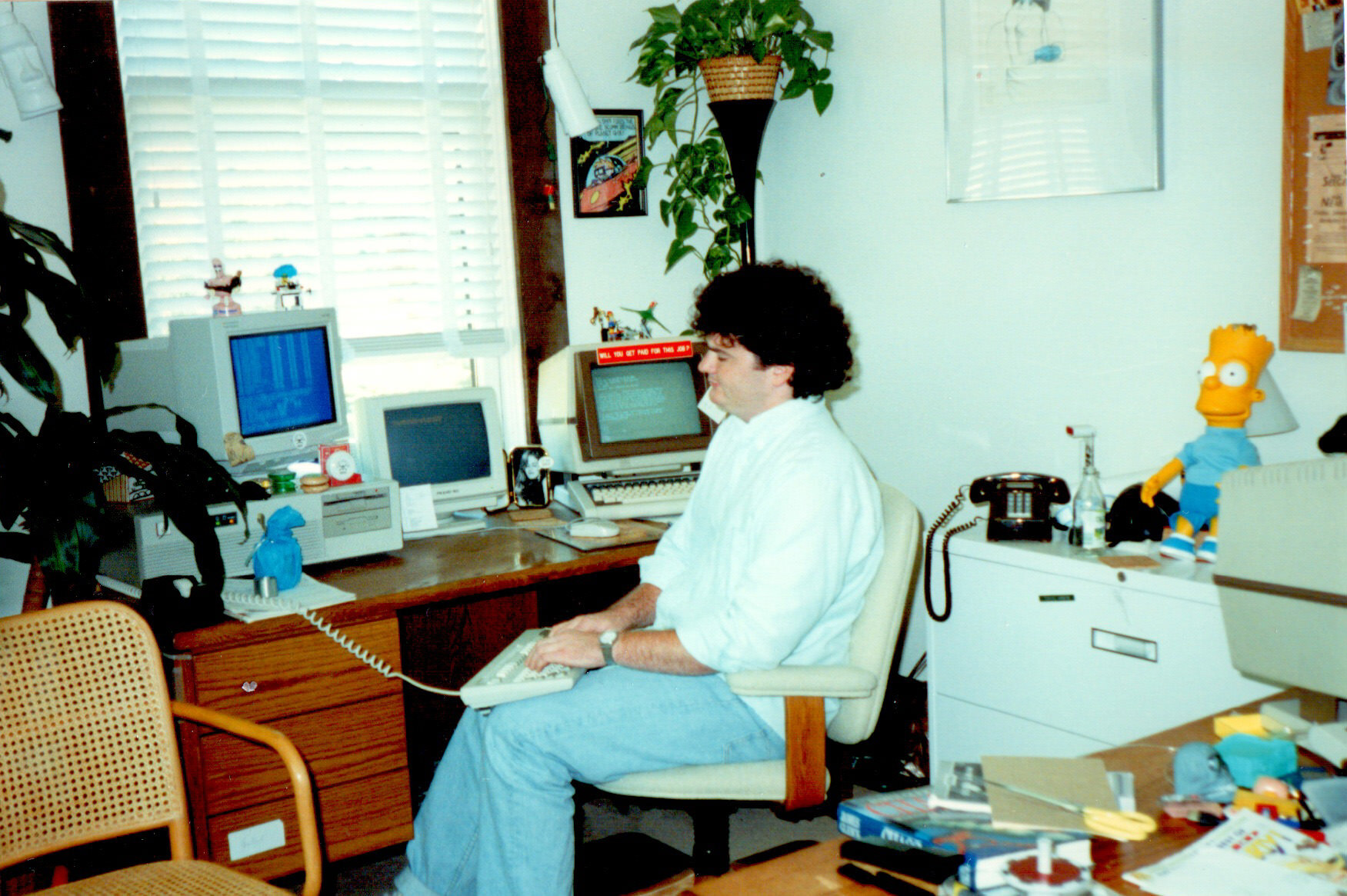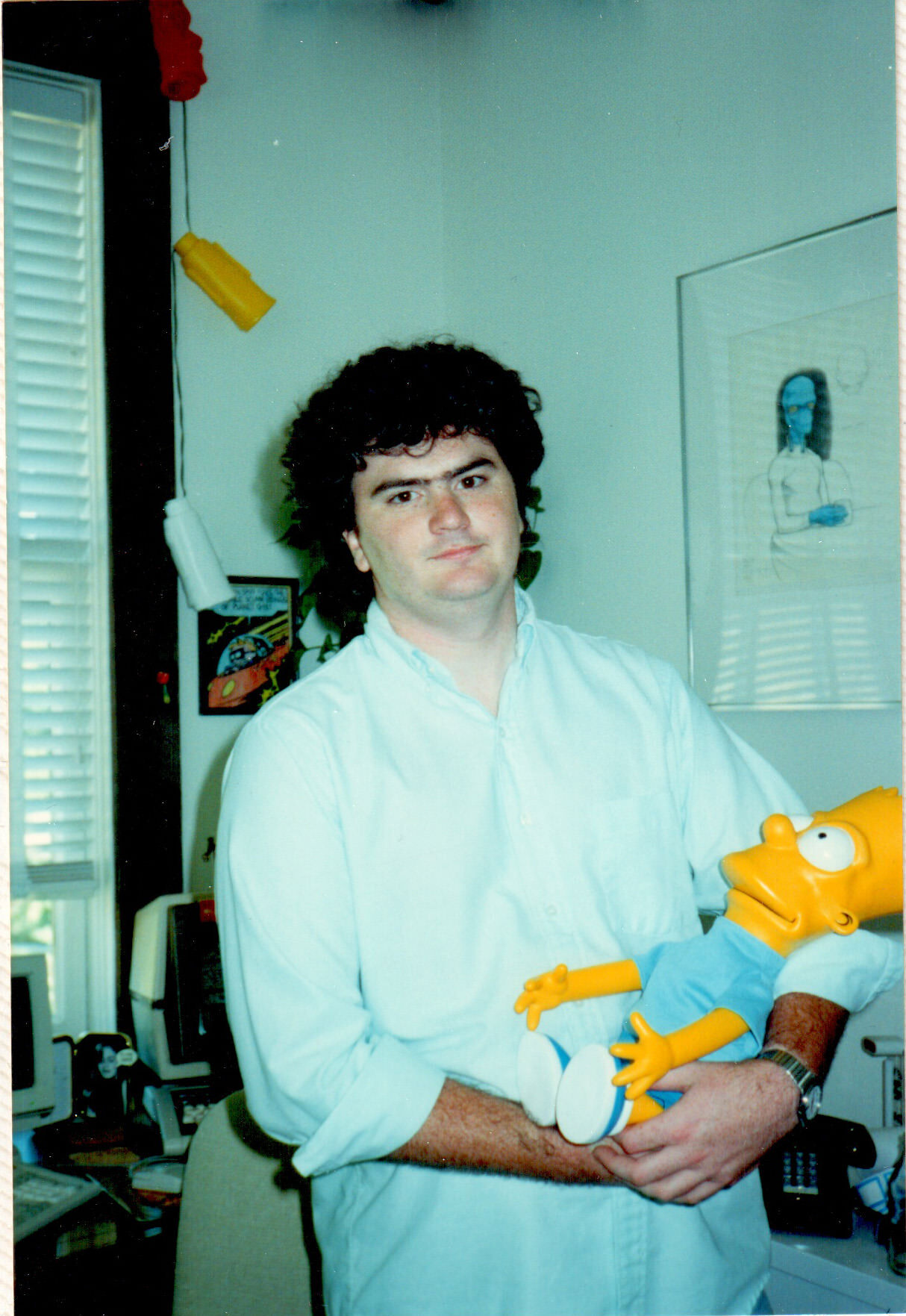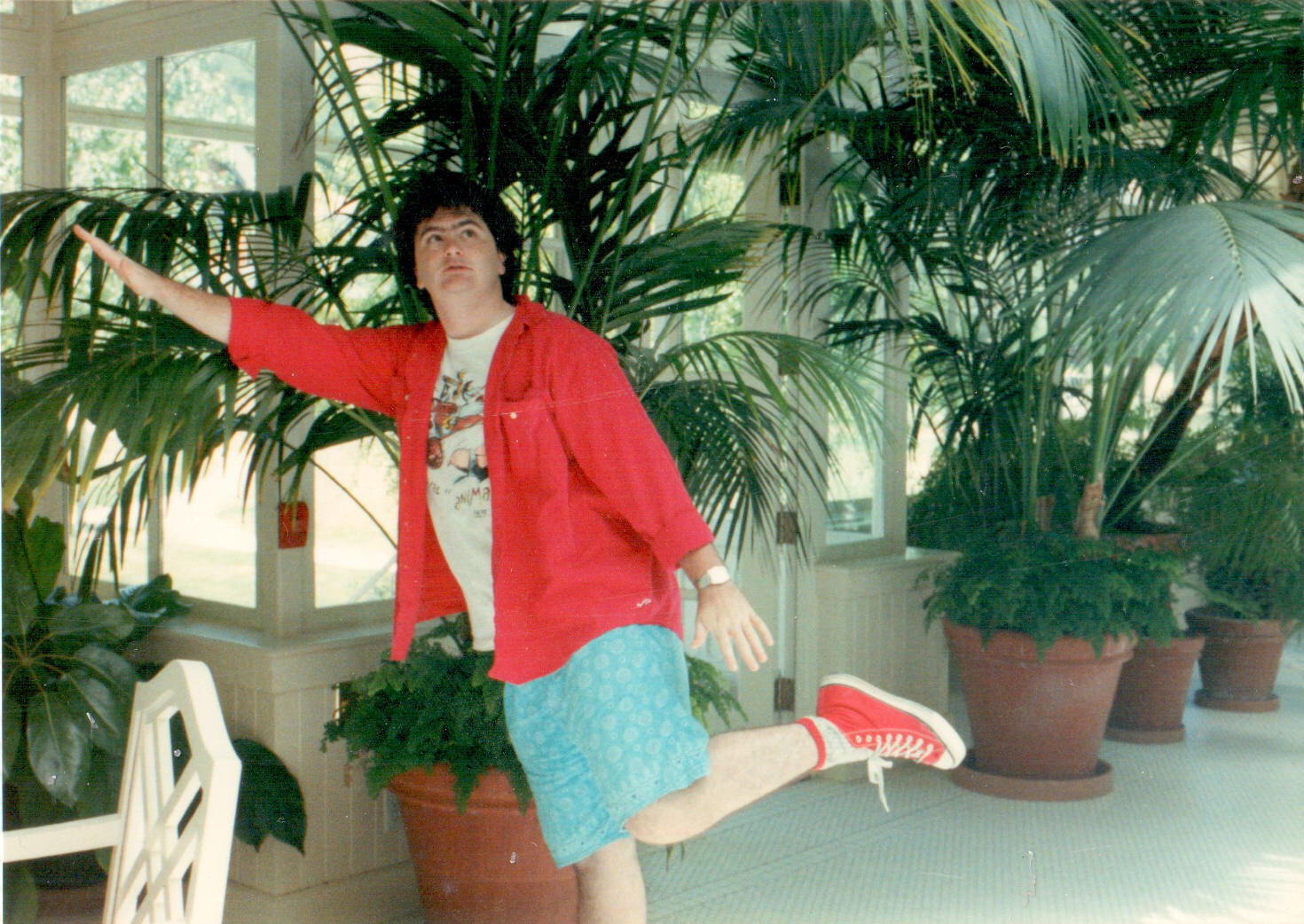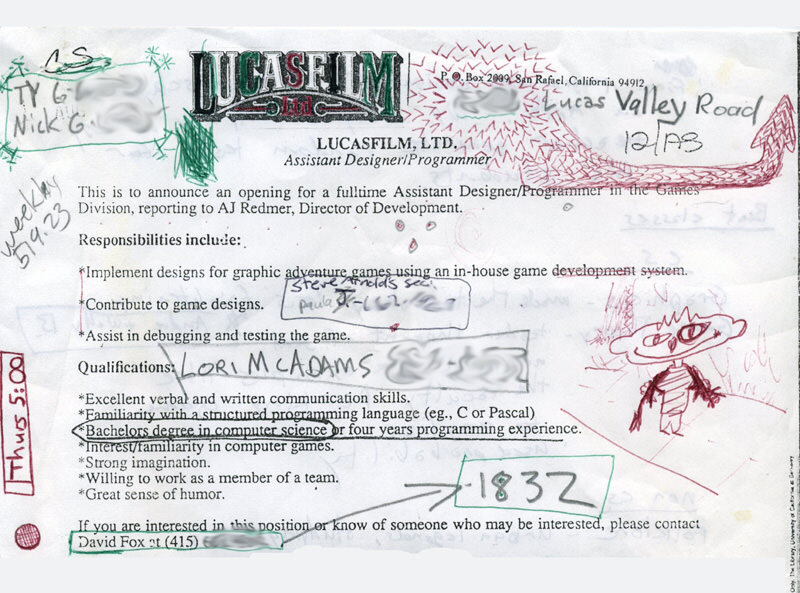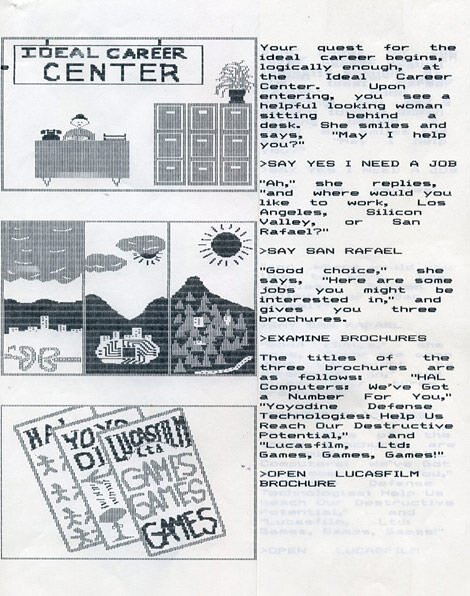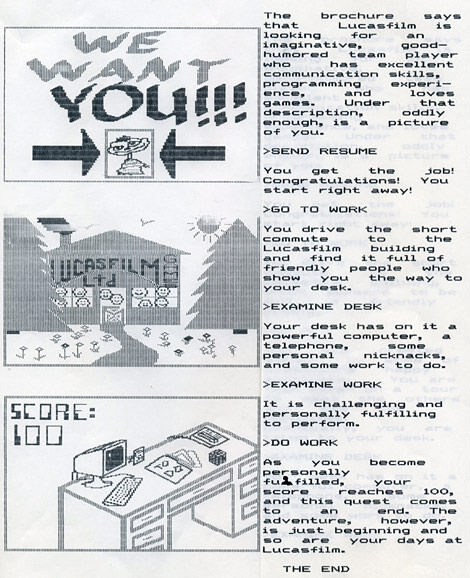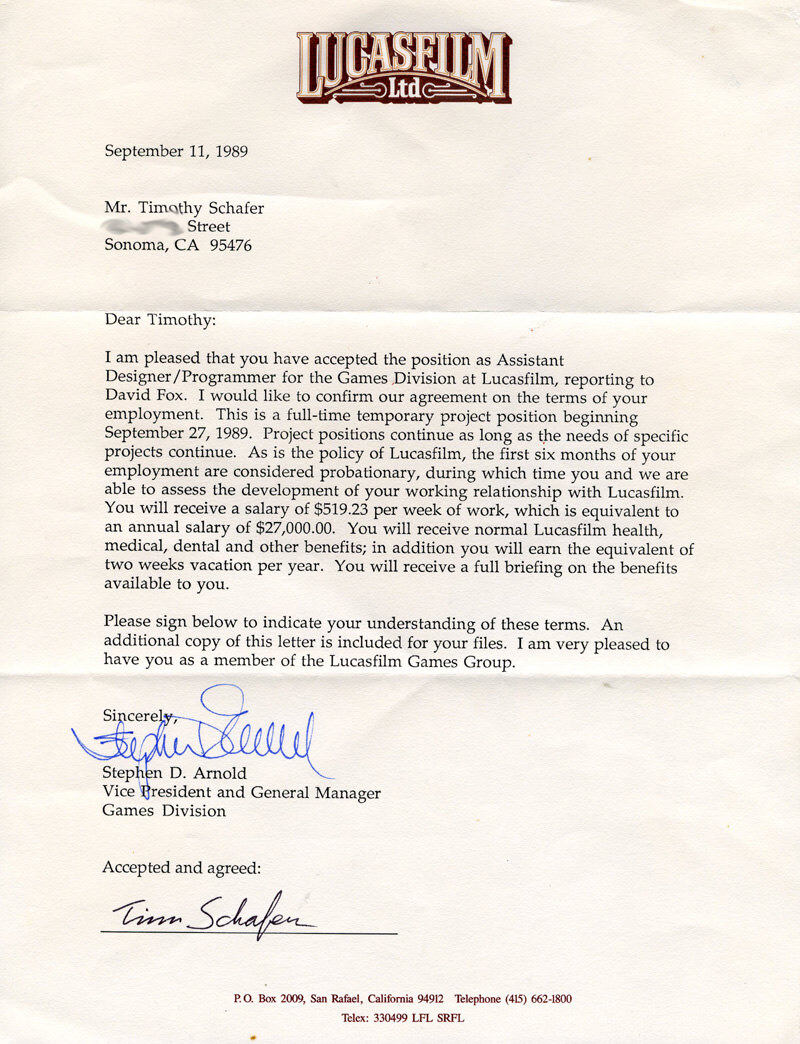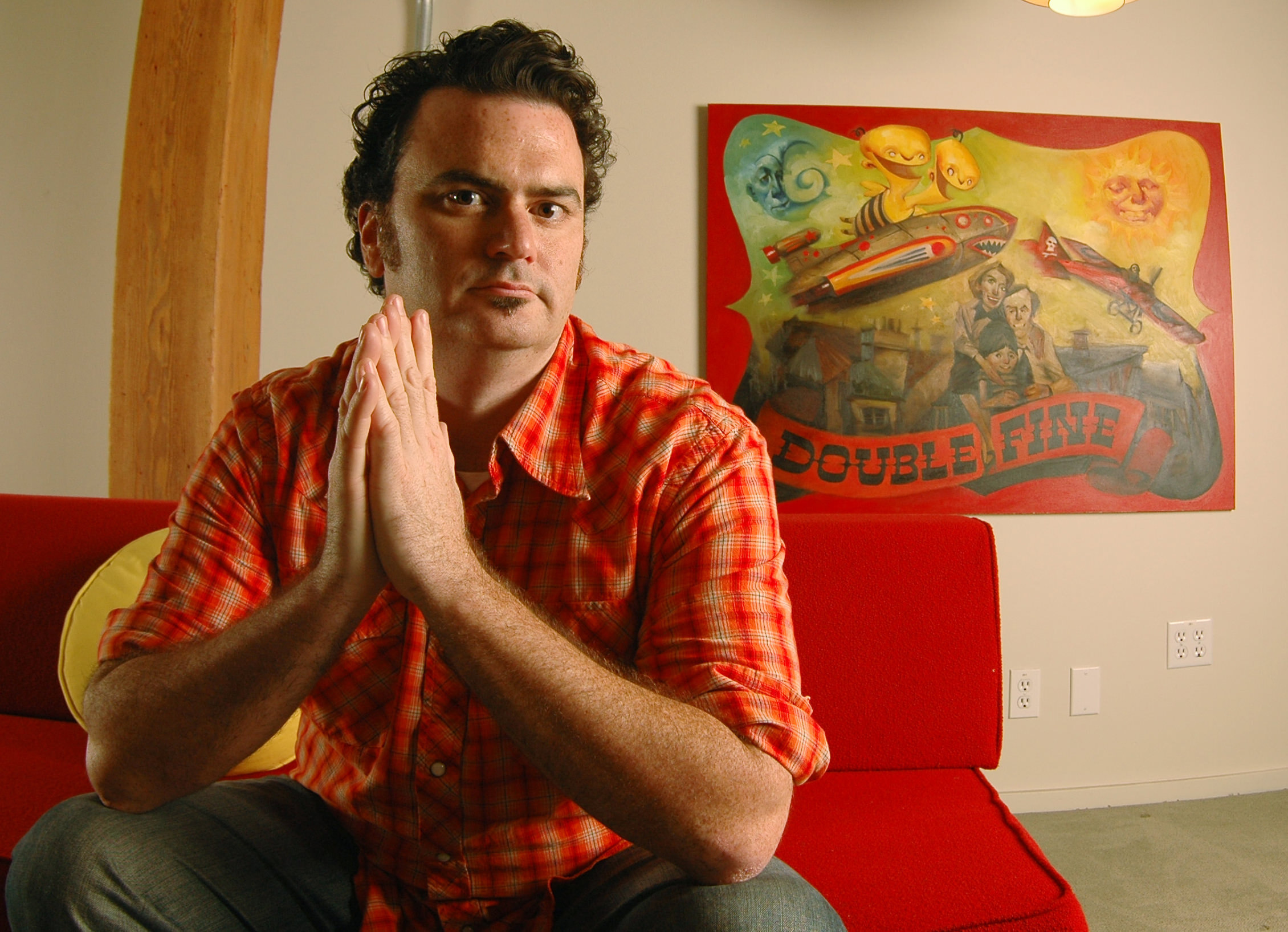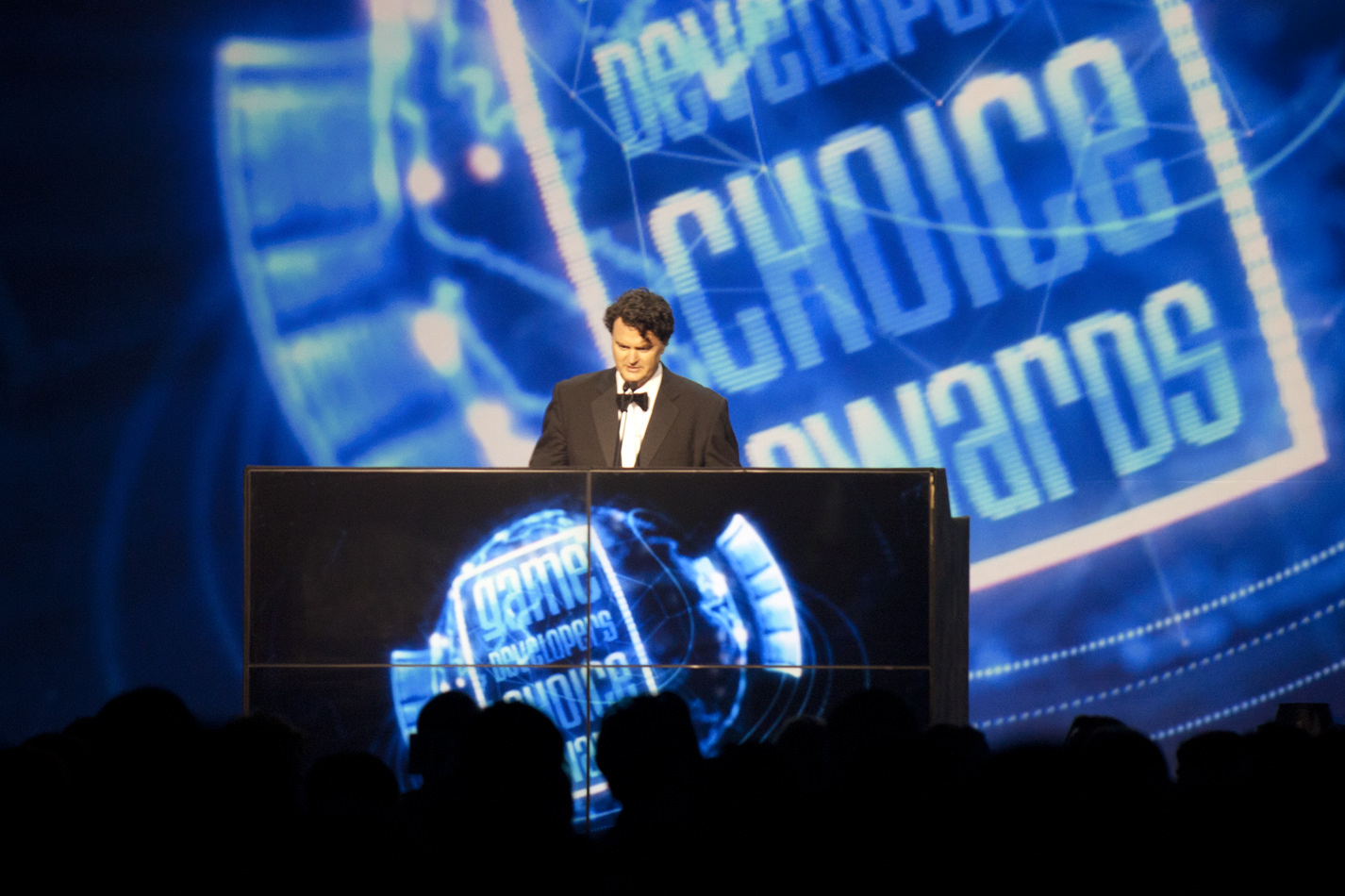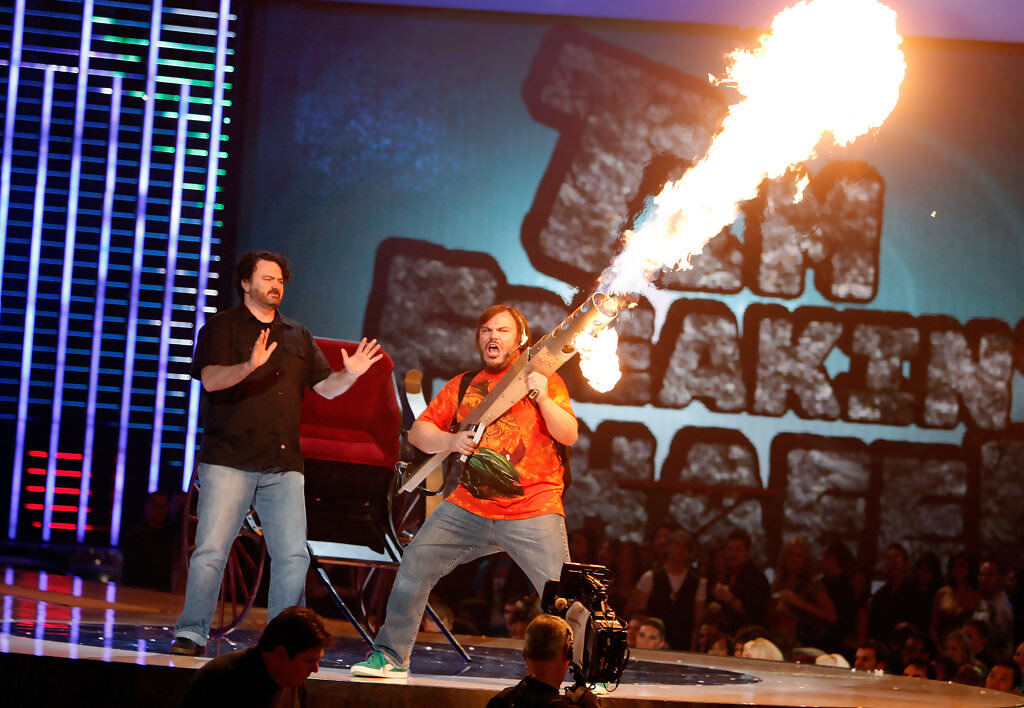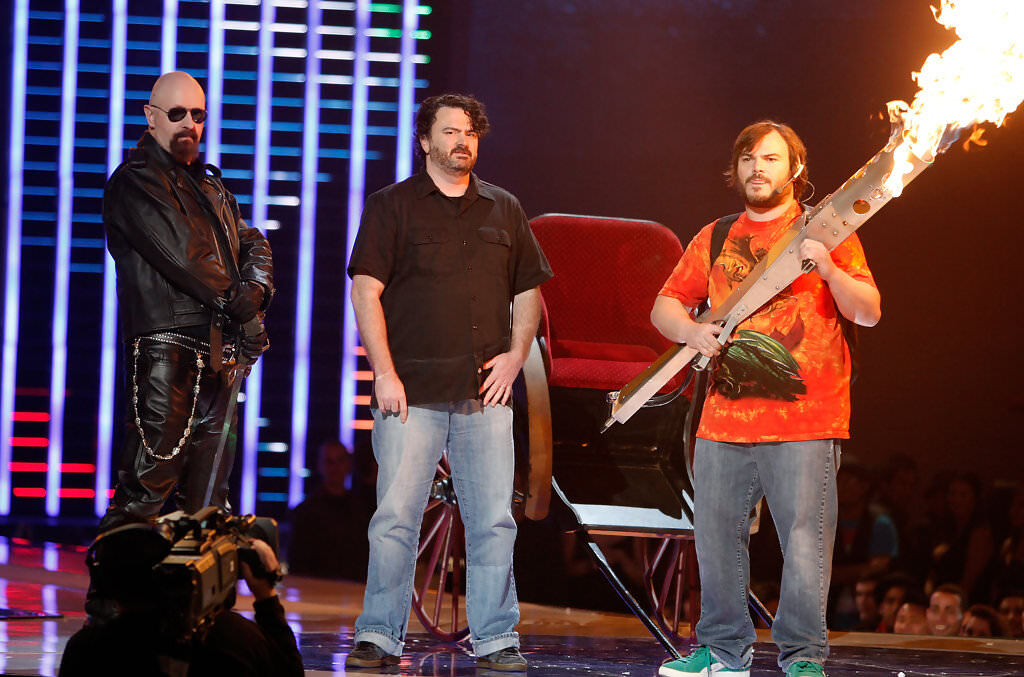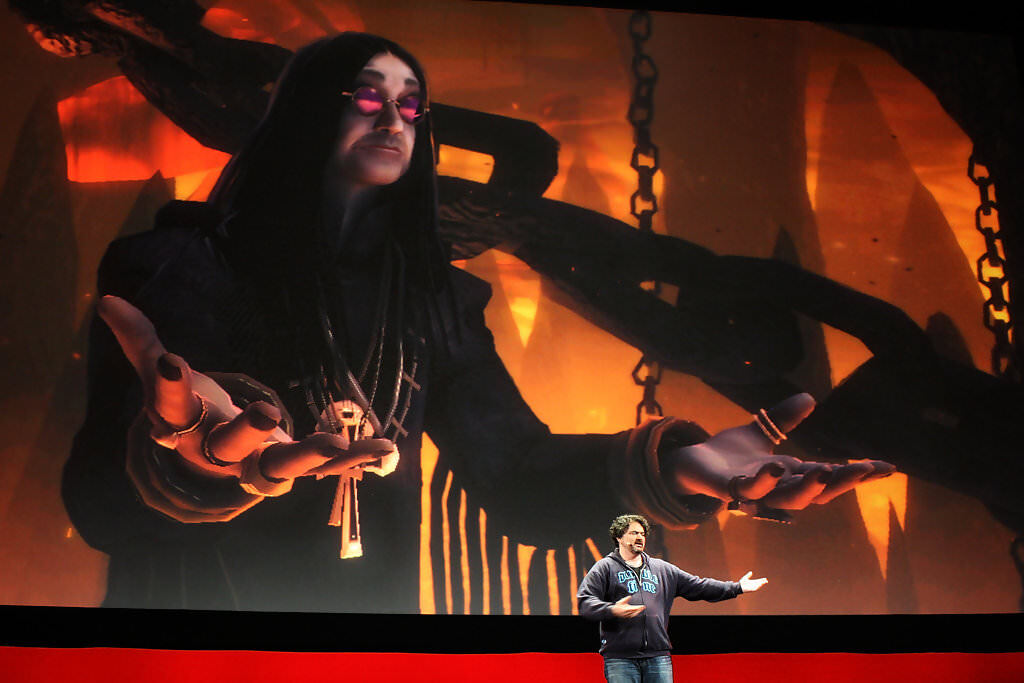Tim Schafer
You want to know about Tim Schafer, game designer and occasional beard-haver? Well! That’s a pretty good thing to want to know about since he’s the head honcho around here but be warned: the stories are a mixture of the mythical and mundane. Did he help create some of your favorite adventure games? Yes. Did he work at LucasArts and do a two-day stint at a turkey farm before that? Absolutely. Has he killed the hydra of game development yet? Jury’s out. For every new task he kills in JIRA, another two pop up.
Let's be serious for moment. Tim was born July 26, 1967. This means that he is older but not too old yet. Which is hard to believe considering he’s made a bajillion games. But what did he do before that? He did what any young person does: list from strange job to strange job in the hopes of finding something that spoke to his soul. Among Tim’s earliest jobs were, and we are not kidding: working at his father’s doctor’s office, trying to work at that aforementioned turkey ranch for a few crappy days, assisting at a movie theater, and working as a hipster at a record store. Some of these things have cropped up in his games. Gloria’s Theater in Psychonauts drew on his knowledge of the Grand Lake Theater in Oakland, where he worked, and his record store days helped shape Brütal Legend.
Tim’s first real job is what really laid the groundwork for everything else. His formative time at LucasArts working on games like The Secret of Monkey Island, Full Throttle, and Grim Fandango. Of course, applying was not without trouble. In his interview with LucasArts guru David Fox, Tim happily claimed that he loved all of the studio's games including Ballblaster. Small problem, bucko. It’s called Ballblazer! Ballblaster is the pirated version, ya dirty scallywag. In spite of this, and perhaps because he knew that Tim could help on pirate-themed games, Fox told Tim to send in his resume.
Which he did! Along with a hand drawn comic of himself getting the job. Tim was hired. Which goes to show, kids, that you can stumble but still stick the landing and change your life forever.
"The Early Times"
Tim started as a “scummlet” at LucasArts in 1989, a mixture of programmer and tester that worked with project leads to make sure their various Big Ideas could actually happen within the company’s proprietary ‘SCUMM’ engine. I have to imagine a lot of the conversations were like this:
George Lucas: “I need you to add dewbacks to Maniac Mansion.”
Tim: “Well, uh, sir, we only have so many bits of data to work with..”
Lucas: “Don’t care, Tom! Just get it done! I have to make more talkies!”
Tim’s first jobs were to work on an Indiana Jones and the Last Crusade game and help to bring Maniac Mansion to the Nintendo Entertainment System. Which somehow managed to keep the whole “hamster in the microwave” gag even if other stuff was censored for the console. These jobs brought him into contact with two important collaborators: his fellow “scummlet” Dave Grossman and project leader Ron Gilbert. Eventually, Gilbert would bring Schafer and Grossman on to help with his next project: The Secret of Monkey Island.
It was, as some might say, a match made in Heaven or, like… whatever place you believe in. Gilbert’s vision of a swashbuckling, Errol Flynn adventure laid a compelling groundwork for an adventure game while Tim and Dave’s propensity for dialogue writing and leaving in funny placeholder text morphed the game into a comedy classic. It also led to the existence of insult swordfighting, a dangerous pastime that plagues the world to this day and makes it really hard to commute to the office every morning because everyone one of us needs to individually duel the Double Fine office’s security guard. The three would collaborate once again for a sequel Monkey Island 2: LeChuck's Revenge, which was just as rad as the first game. The Monkey Island series, combined with Gilbert’s earlier work on Maniac Mansion, cemented the hallmark qualities of adventure gaming: clever, challenging, charming.
Grim Fandango And Such!
Tim and Dave Grossman were then given a new task: create a sequel to Maniac Mansion. Working together as co-leads, the pair made Day of the Tentacle, a convoluted and time-travel packed puzzle romp through the past, present and future. It was a dang good game, although evil games journalist (and current Double Fine content/community manager Heather Alexandra) noted, in a review of the 2016 remaster, that at least one puzzle was “too self-referential for its own good.” Ignore her though; Day of the Tentacle became a certified cult-classic thanks to the clear fun that Tim and Dave had along the way.
But eventually, ya gotta fly solo. Tim was given the chance to direct a game of his own and his thoughts lingered on stories he’d heard about biker bars and road trips where fellas like “Smilin’ Rick” and “Big Phil” did such and such debauchery. So he chugged a gallon of guzz-o-leen and made Full Throttle, a short and frantic blast through biker road-battles and conspiracies. After that, he focused on the afterlife and Mexican folklore to create Grim Fandango. And look, I’m not just saying this because Tim signs my paychecks: that’s seriously one of the best games of all time. Pretty great game with some amazing characters and pretty good puzzles even if I think we all agree that one with the flame extinguisher and the beavers in the forest is a little finicky.
My point here is that Grim Fandango is good and remains good; it won a fair few awards including Game of the Year awards… in the same year that stuff like Ocarina of Time and Metal Gear Solid released. It’s rad and so long as I’m writing this “about” page, I’ll say as much. Grim was critically successful but adventure games were waning by this point, and as Tim spent a few more years at LucasArts.. it became clear that something needed to change.
Why not, Tim decided, set off and make your own game company with fun projects, the joys of intense and uncertain publisher deals, and the freedom to do whatever you want… and all the risks of, well… having the freedom to do whatever you want? So he did that.
Double Fine Is Born
In the year 2000, Tim solved a complicated lock and key puzzle to open LucasArts’ front door and escaped into the city. He founded Double Fine alongside colleagues David Dixon and Jonathan Menzies and shoved a lot of computers into an old clog warehouse. From there, work commenced on Psychonauts. It wasn’t the easiest start. Various publisher shenanigans and last second difficulties almost spelled the company’s end. There’s an alternate timeline where that happened. I’ve been there. That universe’s Tim is grim-dark and says words like “heck” and “damn.” It’s mostly chill otherwise—global warming was solved for instance—but it’s also a world without the hit cult classic Psychonauts and that’s not great.
Thankfully, Psychonauts released in our timeline and Double Fine continued. That means Brütal Legend and other games exist as well. It means there’s remastered versions of Grim Fandango and other LucasArts’ adventure games. It also means a ton of different original experiments like RAD, Massive Chalice, and more. Because if there’s one thing that Tim does well and that Double Fine does well in turn, it’s playing around. Mixing and matching genres or seeking new ways to make games happen.
The various forms of Tim Schafer (and his Soul Patch): The Double Fine Years
Broken Age And Beyond
That last part is important because it led to one of the most successful Kickstarter projects of all time: Broken Age. In a world where fancy people in business suits said things like “Adventure games aren’t good for our Q2 profit-margins” and “Focus testing shows that what players really want is microtransactions,” Tim decided that what people wanted was the things they literally said they wanted. If enough people wanted adventure games and could help make that happen with their financial support and trust? Well, you might as well do it. So Double Fine did. We made an adventure game and found a way to do it without a big huge publisher. That was cool.
Of course, stability is cool too. In 2019, Tim talked with different people in different business suits who said “Hey, do you want to stop worrying about your payroll?” So Double Fine joined with Microsoft. That’s how some schmuck who basically admitted he was playing a pirated version of Ballblazer guided a band of devs, artists, programmers, and other goons through twenty years of game development and business drama into calmer but no less strange and silly waters.
He’s still here, captaining the ship, and telling the crew to be pirates. Just not literally. This is a metaphor about being quirky and true to yourself. Because hey, I’m the person writing this and while I’ve only known Tim for a little while one thing is true: he is that strange scallywag you think he is. He has a huge mountain man beard now. He sits down and runs through Psychonauts 2 all the time so he can give new notes and feedback; he starts our weekly meetings with silly videos that match our theme song. Tim plays. And while Double Fine is much bigger than just Tim Schafer, we’re glad that he didn’t he didn’t become a professional turkey rancher. We’ve visited that timeline too and it was pretty damn dull.
